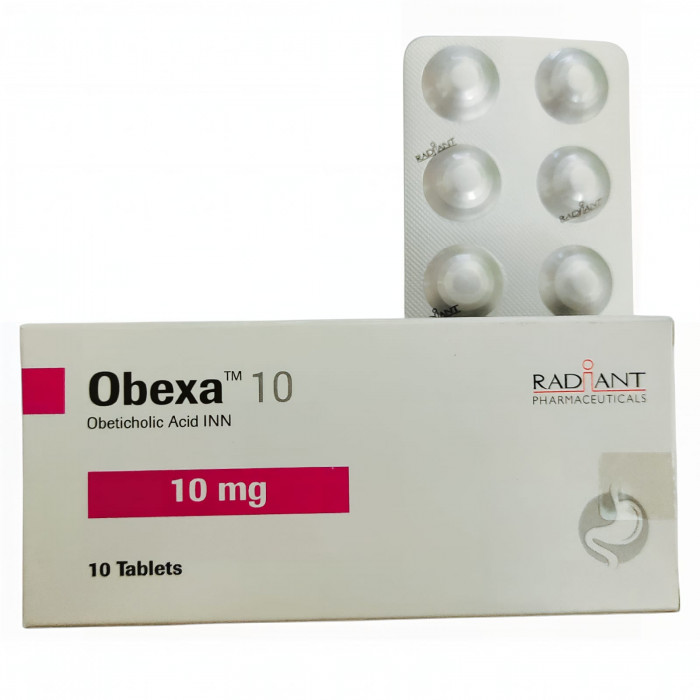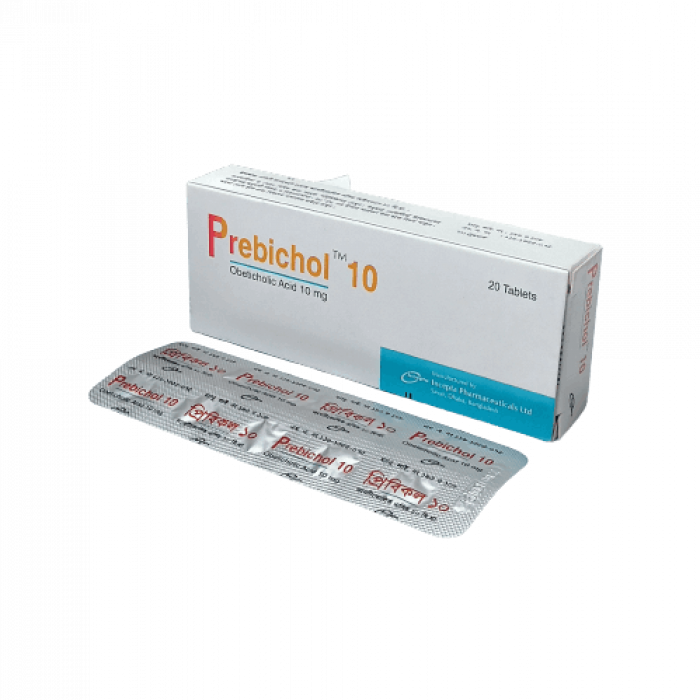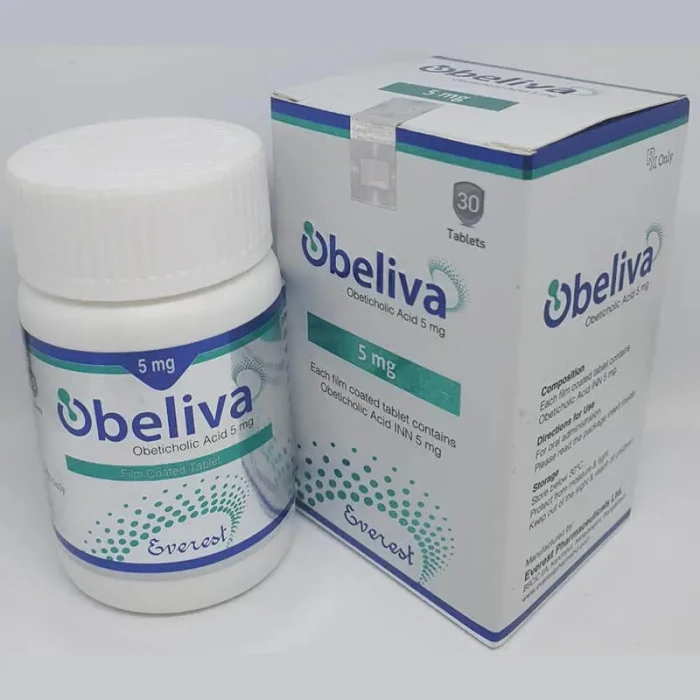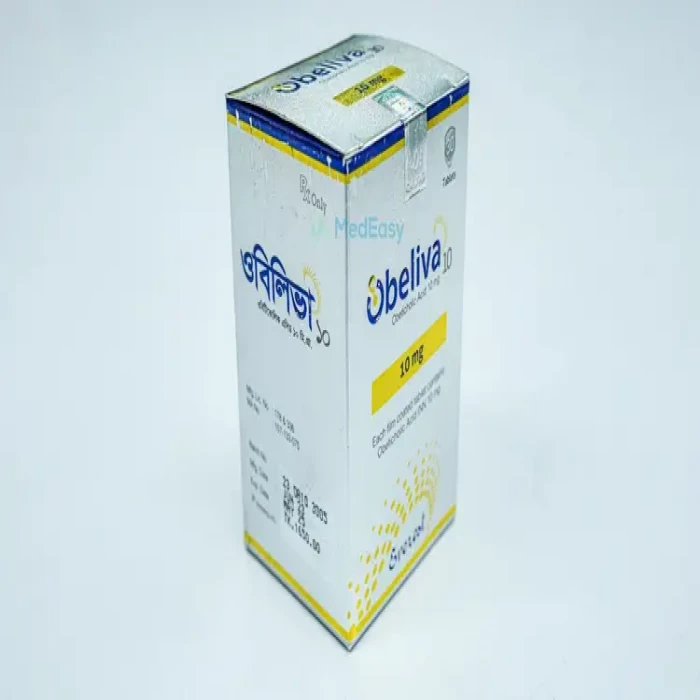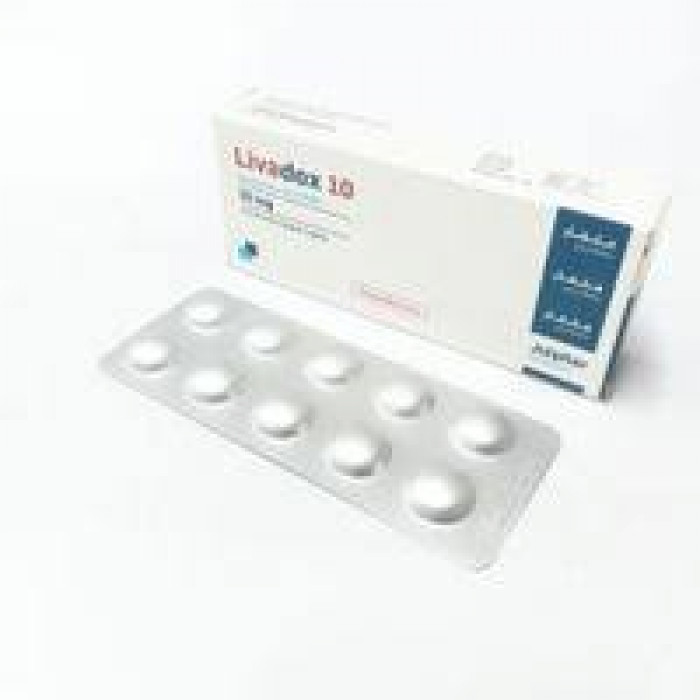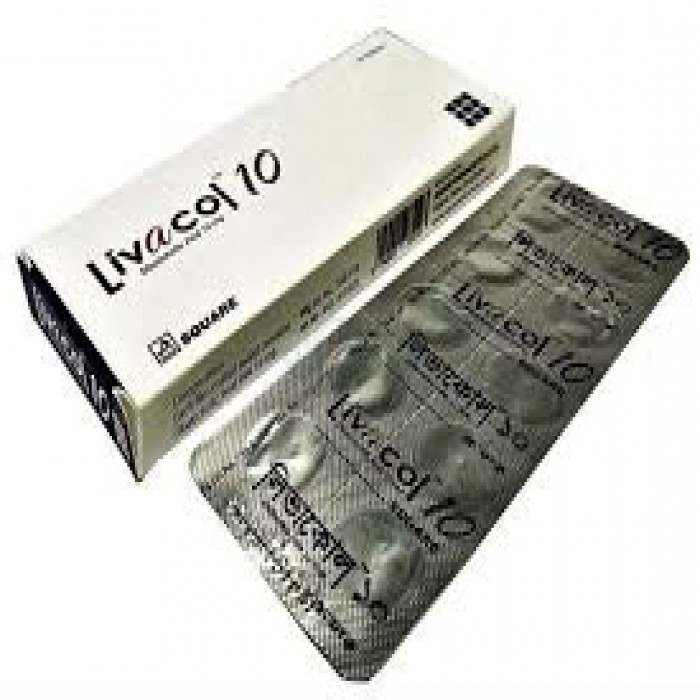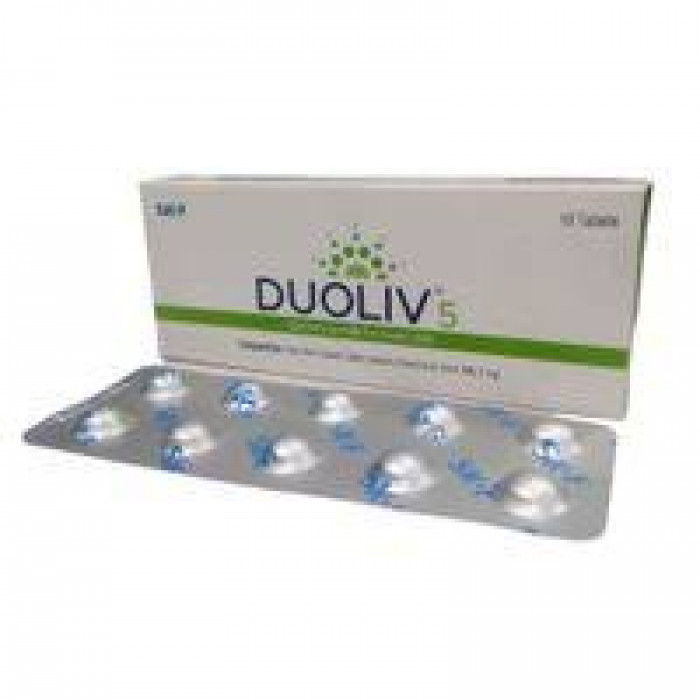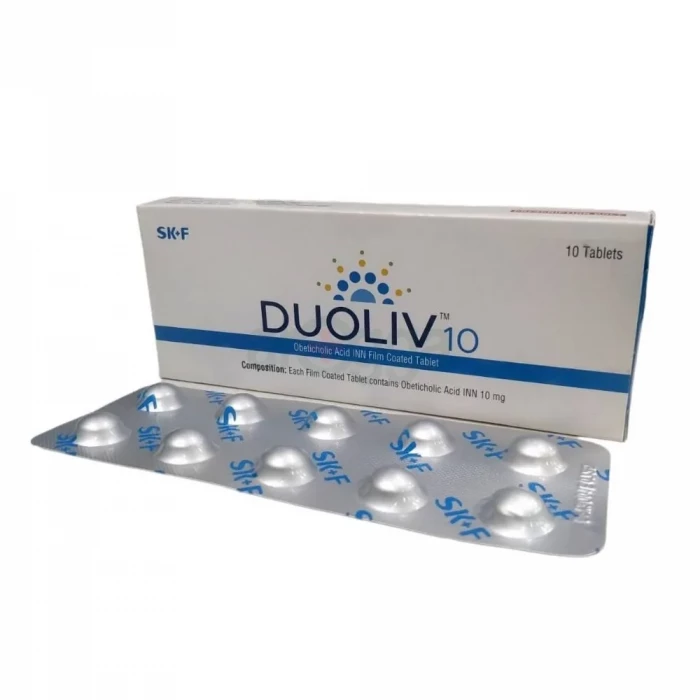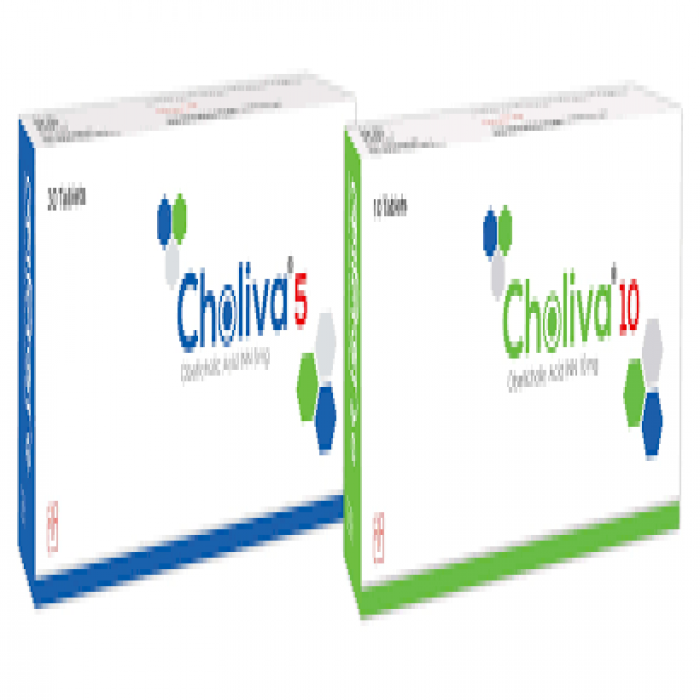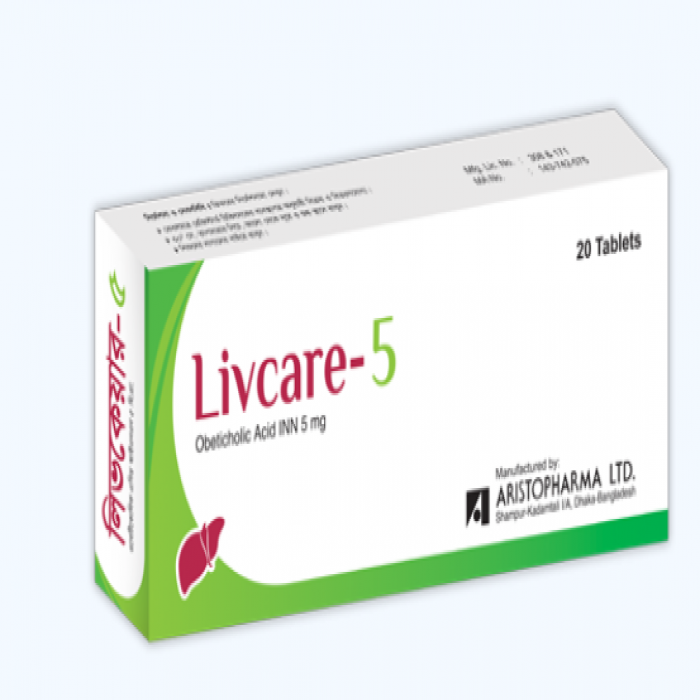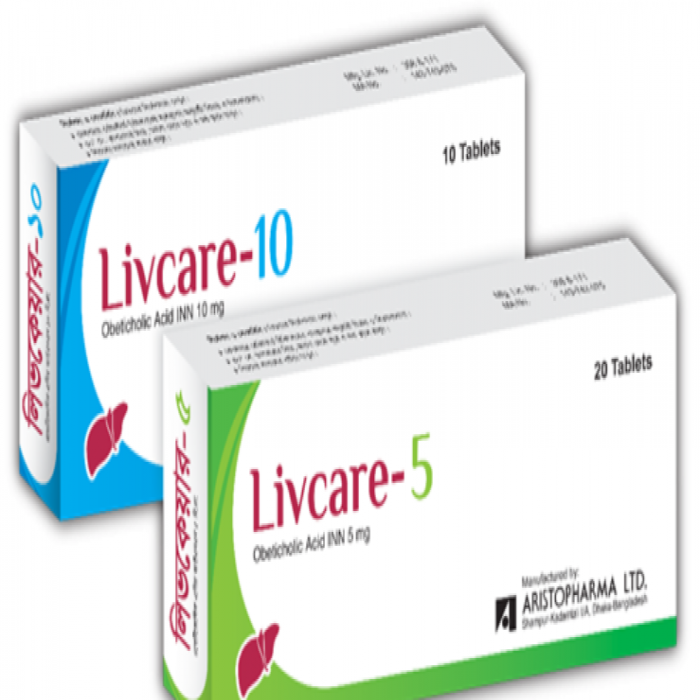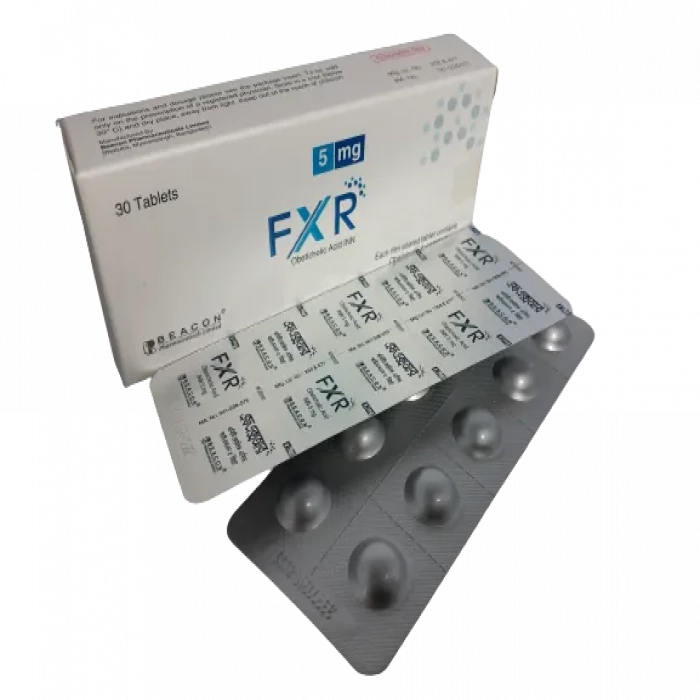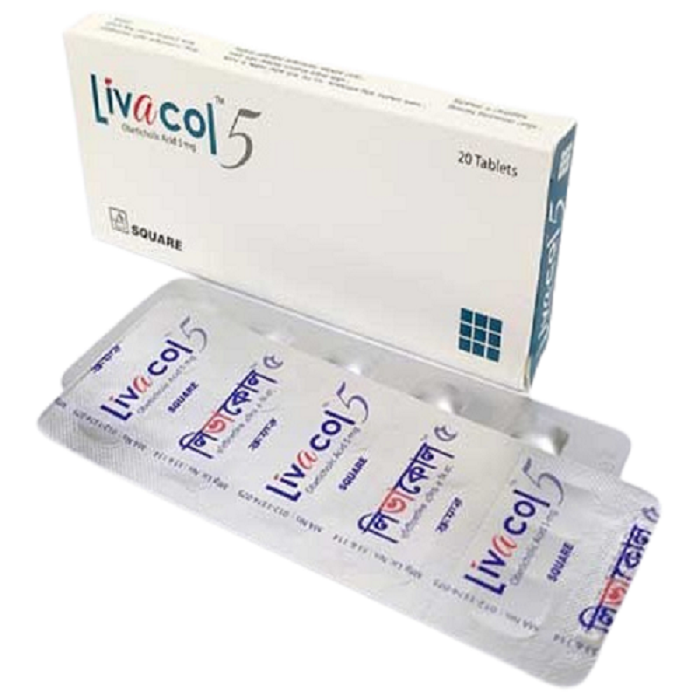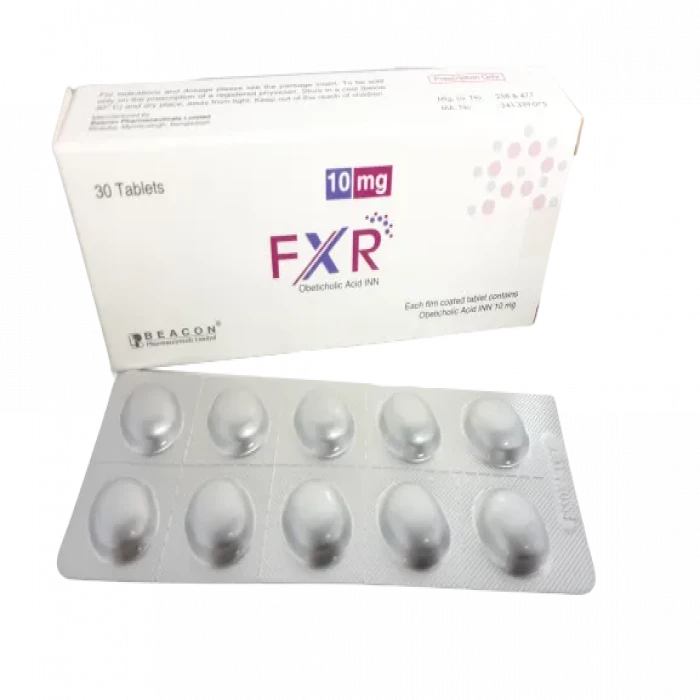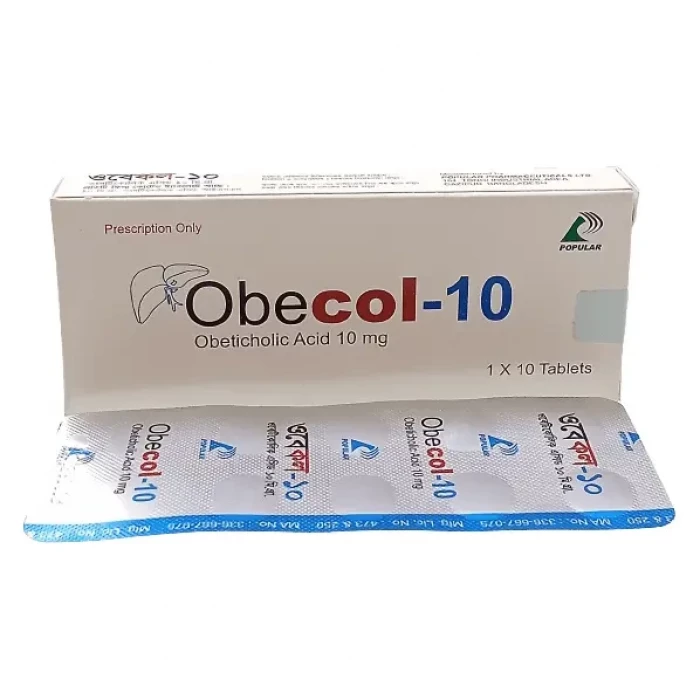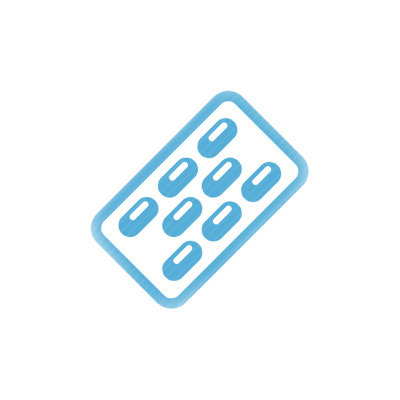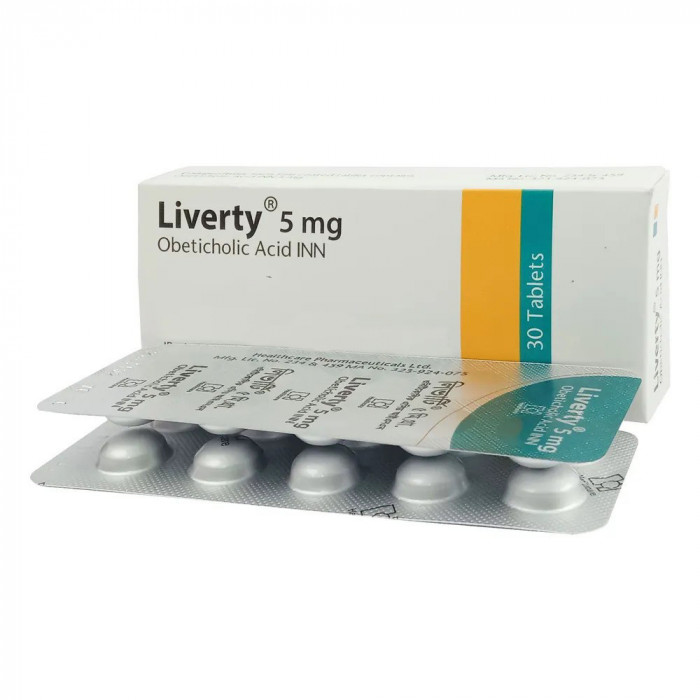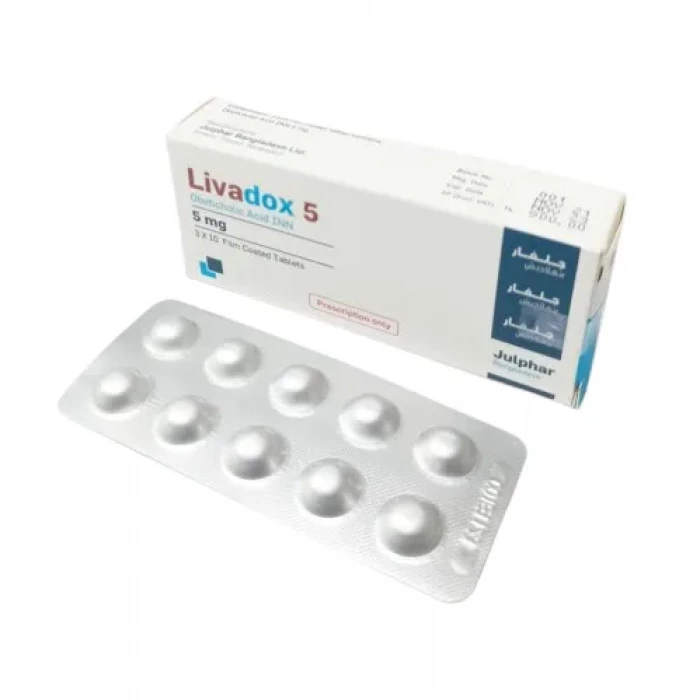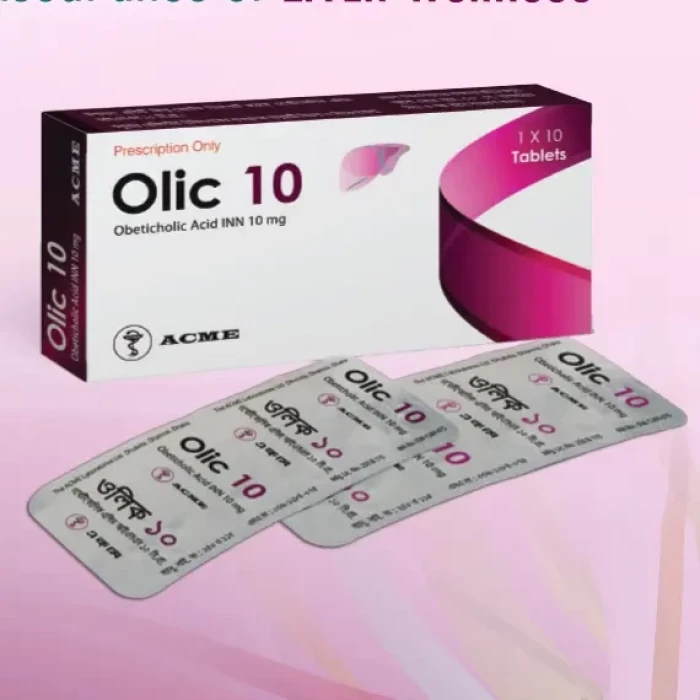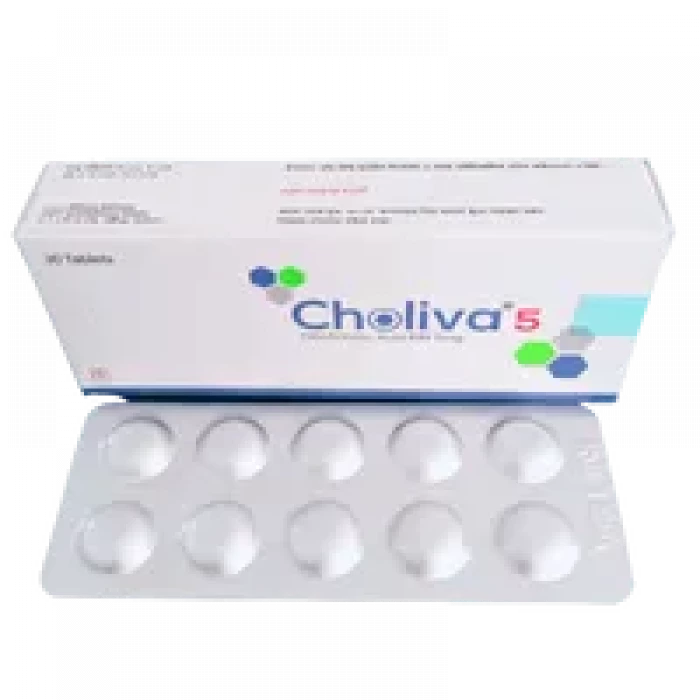
✔ 100% Authentic Product
👁️ Currently Viewing 2258
Choliva 5mg Tablet
Choliva 5mg Tablet works by decreasing the production of bile in the liver and promoting the removal of bile from your liver.
Discount
Price: ৳ 343
MRP:
৳
350
2%
Off

100% Genuine Products, Guaranteed

Safe & Secure Payments, Always

Fast, Secure & Efficient Delivery

Proper Packaging
 Cash on Delivery - All over Bangladesh
Cash on Delivery - All over Bangladesh Regular Delivery - 12-24 Hours, Dhaka City* Charge Tk.39-59
Regular Delivery - 12-24 Hours, Dhaka City* Charge Tk.39-59 Regular Delivery - 24-48 Hours, Other Cities* Charge Tk.99-110
Regular Delivery - 24-48 Hours, Other Cities* Charge Tk.99-110
 ফ্রি ডেলিভারিঃ - ৯৯৯ টাকা+ অর্ডারে, ঢাকা
শহরে
ফ্রি ডেলিভারিঃ - ৯৯৯ টাকা+ অর্ডারে, ঢাকা
শহরে ফ্রি ডেলিভারিঃ - ২৯৯৯ টাকা+ অর্ডারে, ঢাকার
বাহিরে
ফ্রি ডেলিভারিঃ - ২৯৯৯ টাকা+ অর্ডারে, ঢাকার
বাহিরে
100% Genuine Products, Guaranteed
Safe & Secure Payments, Always
Fast, Secure & Efficient Delivery
Proper Packaging
 Cash on Delivery - All over Bangladesh
Cash on Delivery - All over Bangladesh Regular Delivery - 12-24 Hours, Dhaka City* Charge Tk.39-59
Regular Delivery - 12-24 Hours, Dhaka City* Charge Tk.39-59 Regular Delivery - 24-48 Hours, Other Cities* Charge Tk.99-110
Regular Delivery - 24-48 Hours, Other Cities* Charge Tk.99-110 ফ্রি ডেলিভারিঃ - ৯৯৯ টাকা+ অর্ডারে, ঢাকা
শহরে
ফ্রি ডেলিভারিঃ - ৯৯৯ টাকা+ অর্ডারে, ঢাকা
শহরে ফ্রি ডেলিভারিঃ - ২৯৯৯ টাকা+ অর্ডারে, ঢাকার
বাহিরে
ফ্রি ডেলিভারিঃ - ২৯৯৯ টাকা+ অর্ডারে, ঢাকার
বাহিরে
✅ Description:
Choliva 5mg Tablet is a medication containing Obeticholic acid, which is classified as a Farnesoid X receptor agonist. It is primarily used to treat a condition called primary biliary cholangitis (also known as primary biliary cirrhosis) in adults. This medication may be prescribed either on its own or in combination with another medicine called ursodeoxycholic acid.
Primary Biliary Cholangitis (PBC) is a chronic liver disorder characterized by the gradual destruction of the bile ducts within the liver. As these bile ducts are damaged and lost, bile, a digestive fluid that helps in the absorption of vitamins and nutrients, accumulates within the liver. This buildup leads to inflammation and scarring, and over time, it can result in cirrhosis. PBC was formerly known as primary biliary cirrhosis.
Here are some key points to note regarding Choliva 5mg Tablet:
- It is not recommended for use in pregnant women, and if you are breastfeeding, you should consult your doctor before taking this medication.
- Choliva 5mg Tablet is not intended for use in children and adolescents (those under 18 years of age). It should be used with caution in elderly patients, particularly those aged 65 years and older, and you should consult your doctor before taking it.
- Before starting treatment with Choliva 5mg Tablet, your doctor may advise you to undergo blood tests to assess your liver function.
- Common side effects of Choliva 5mg Tablet may include symptoms like stomach pain, tiredness, dizziness, constipation, dry skin, and fast or irregular heartbeat. If any of these symptoms worsen or if you experience any severe side effects, consult your doctor.
Safety Advices

Alcohol
UNSAFE
Interaction with alcohol is unknown.

Pregnancy
UNSAFE
Obeticholic Acid is not recommended for use during pregnancy unless absolutely necessary. All the risks and benefits should be discussed with your doctor before taking this medicine.

Breastfeeding
CONSULT YOUR DOCTOR
Obeticholic Acid is not recommended for use while breastfeeding unless absolutely necessary. All the risks and benefits should be discussed with your doctor before taking this medicine.

Driving
CAUTION
Choliva 5mg Tablet does not affect your ability to drive. However, you are advised to omit driving if you experience dizziness.

Kidney
CONSULT YOUR DOCTOR
Please consult your doctor if you have kidney impairment or any concerns regarding this.

Liver
CONSULT YOUR DOCTOR
Dose adjustment may be needed. Please consult your doctor if you have a liver impairment or any concerns regarding this. Inform your doctor if you have/had liver cirrhosis.
✔️ Uses:
- Treats primary biliary cholangitis in adults
✔️ How does Choliva 5mg Tablet work?
Choliva 5mg Tablet works by reducing the production and build-up of bile in the liver and also reduces the inflammation of the liver. Therefore, as a result, it helps to improve liver function.
✔️ Side Effects of Choliva 5mg Tablet
Common side effects include pruritus, fatigue, stomach pain, discomfort, rashes, joint pain, oropharyngeal discomfort, dizziness, constipation, altered thyroid function, and eczema.
✔️ Quick Suggestions:
- PBC is much more common in women, with women accounting for about 90% of PBC cases. The reason for this sex difference is not fully understood.
- PBC is most likely to occur in individuals between the ages of 30 and 60 years old. It is less common in younger individuals and older adults.
- There appears to be a genetic component to PBC. If you have a family member who has or has PBC, your risk of developing the condition may be increased. This suggests a possible genetic predisposition.
- PBC is more common in people of northern European descent. However, it can affect individuals of all races and ethnic backgrounds.
- Researchers believe that genetic factors, in combination with certain environmental factors, may trigger the development of PBC. These environmental factors can include:
- Certain infections, such as urinary tract infections, have been considered as potential triggers for PBC. However, the exact relationship between infections and PBC is still under investigation.
- Smoking has been suggested as a potential environmental factor that may increase the risk of PBC. Smoking is known to have various negative effects on health, and it may contribute to the development of autoimmune conditions like PBC.
- Exposure to certain toxic chemicals or environmental toxins has been considered a possible risk factor for PBC. However, more research is needed to establish a direct link between specific toxins and the development of the condition.
✔️ Indications:
Obeticholic Acid is used to treat several conditions, including:
- Primary biliary cholangitis (PBC) in individuals who have had a poor response to UDCA (ursodeoxycholic acid).
- Cholestatic liver disease.
- Non-alcoholic fatty liver disease (NAFLD), including non-alcoholic steatohepatitis (NASH).
✔️ Pharmacology:
Obeticholic Acid activates the farnesoid X receptor (FXR), a nuclear receptor found in the liver and gut. FXR plays a critical role in bile acid, inflammatory, fibrotic, and metabolic pathways. FXR activation reduces bile acid concentrations within hepatocytes by limiting de novo cholesterol production and increasing bile acid transport out of hepatocytes. These mechanisms reduce hepatic bile acid exposure and increase choleresis.
✔️ Dosage & Administration
- Starting Dosage: The recommended starting dosage is 5 mg orally once daily for adult patients who have not responded adequately to an appropriate dosage of UDCA for at least 1 year or are intolerant to UDCA.
- Dosage Titration: If there is no adequate reduction in alkaline phosphatase (ALP) and/or total bilirubin after 3 months of 5 mg once daily, and the patient tolerates the medication, the dosage can be increased to 10 mg once daily.
- Maximum Dosage: The maximum recommended dosage is 10 mg once daily.
- Management of Patients with Intolerable Pruritus: Options for patients with intolerable pruritus include adding an antihistamine or bile acid binding resin, reducing the dosage to 5 mg every other day for those intolerant to 5 mg once daily, or reducing the dosage to 5 mg once daily for those intolerant to 10 mg once daily. Temporary interruption of dosing for up to 2 weeks, followed by restarting at a reduced dosage, can also be considered.
✔️ Interaction
- Bile acid binding resins may reduce the absorption, systemic exposure, and efficacy of obeticholic acid.
- When taken together with warfarin, obeticholic acid can decrease the International Normalized Ratio (INR). Adjust the warfarin dosage as needed.
- Obeticholic acid may increase the exposure to concomitant CYP1A2 substrates with a limited therapeutic index.
✔️ Contraindications
Obeticholic Acid should not be used by patients with known hypersensitivity to the medicine or any of its components, as well as those with total biliary obstruction.
✔️ Pregnancy & Lactation
There is insufficient human data to establish the drug-associated risk of Obeticholic Acid consumption during pregnancy. Additionally, there is no information on its presence in human milk, its effects on breastfed infants, or its impact on milk production.
✔️ Precautions & Warnings
Specialized monitoring is required for adverse reactions to the liver, such as pruritus and low-density lipoprotein-cholesterol reduction (HDL-C).
✔️ Storage Conditions
Store Obeticholic Acid at 15°C to 30°C in a dry, light-protected location, and keep it out of children's reach.
⚠️Disclaimer:
At ePharma, we’re committed to providing accurate and accessible health information. However, all content is intended for informational purposes only and should not replace medical advice from a qualified physician. Please consult your healthcare provider for personalized guidance. We aim to support, not substitute, the doctor-patient relationship.




